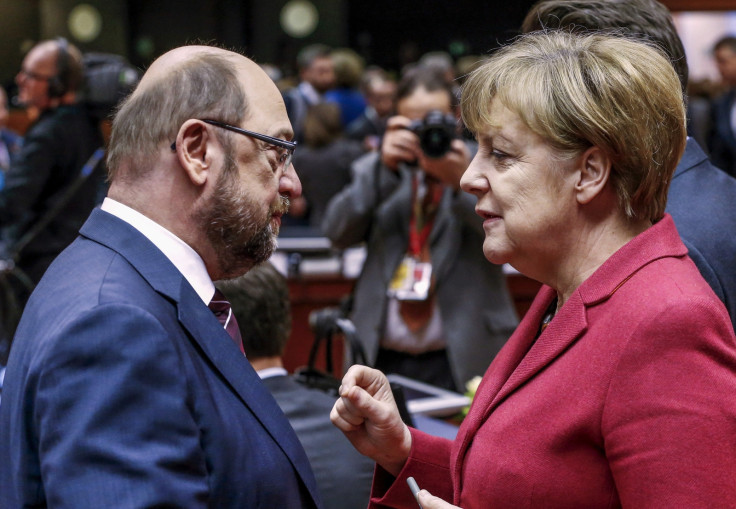Merkel upbeat over fresh coalition talks to end Germany's political crisis
KEY POINTS
- The German chancellor said she was "optimistic" both parties could reach an agreement.
- Many see the talks as Merkel's last chance to form a stable coalition.
German chancellor Angela Merkel has agreed to fresh talks to form a new government in a bid to end the political crisis in Europe's largest economy.
Merkel launched her latest round of coalition talks on Sunday (7 January), more than three months after Germany's election, which saw the three main parties lose ground and the far-right Alternative for Germany (AfD) party make unprecedented gains.
The German chancellor is facing mounting pressure to form a coalition, after talks with the liberal Free Democratic Party (FDP) and the Greens fell apart in November.
Merkel must now convince the centre-left Social Democrats (SDP) leaders that they have enough in common with her centre-right party and the right ot centre Christian Democrats (CDU), to start formal at the end of five days of talks this week. If successful more formal negotiations are expected to take weeks.
Many see the latest round of talks as Merkel's final chance to form a stable coalition government. Some see this as the biggest crisis the chancellor has faced in the 12 years she had led Germany.
She is facing pressure from conservative members of her party who say she has abandoned traditional values and driven people into the arms of the AfD.
The far-right, anti-immigration AfD took more than 12.6% of the national vote in September, entering parliament for the first time as the country's third-largest political force.
As negotiations with the SPD got underway, the chancellor acknowledged that there was a long road ahead, but she said she was "optimistic" that the parties could reach an agreement.
"I think that it can be done. We will work very swiftly and very intensively," she told reporters.
SPD leader Martin Schulz said he hoped for "constructive and open" negotiations, adding that the SPD would not draw any red lines and that "new times call for new politics."
The SPD leader said he wants to modernise Germany's education system, housing and infrastructure. The SDP also opposes like tax cuts for high earners and benefit reductions for asylum seekers, both of which are strongly supported by elements in Merkel's party.
One in three voters thought that the current talks would fail, according to a recent opinion poll, the BBC reported.







